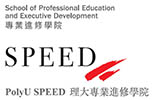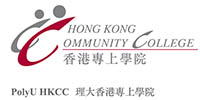雙語社評齊齊聽
[英語 (足本收聽)] Presented by Dr KWOK, Frieda Yuk-yin, Lecturer of Hong Kong Community College, The Hong Kong Polytechnic University
[普通話 (足本收聽)] Presented by Dr CHOW, Raymond Wen-chun,Lecturer of Hong Kong Community College, The Hong Kong Polytechnic University
The government has decided to scrap the existing quarantine exemption arrangements for most "exempted groups" except those providing emergency services or people who are indispensable. Since the outbreak of the Covid-19 pandemic, quarantine exemption arrangements have been the major loopholes repeatedly seen in the city's guard against the import of infected cases. Imported cases related to exemption arrangements for seafarers, air crew members and the family members of diplomats have surfaced repeatedly, which have triggered the alarm of pandemic risk at best and resulted in community outbreaks at worst. Because of the different considerations of different government departments, too much case-by-case consideration has been made and the risks have been underestimated. The loopholes should have long been plugged. No matter from the perspective of public health or the economic perspective, the top priority for Hong Kong at this stage should be bringing Covid case numbers to zero and reopening the border with the mainland. Abolishing most quarantine exemption arrangements is in accord with the need of guarding against the import of infected cases and will certainly contribute to the earlier reopening of the border. Many foreign companies in Hong Kong have to send people to the mainland to handle business matters. When the government paves the way to the reopening of the border by scrapping quarantine exemption arrangements, these foreign companies also stand to benefit. The authorities should explain harder to dispel their worries about whether the new measures will affect the status of Hong Kong as an international finance centre.
On September 26, the first meeting between experts from Hong Kong and the mainland on the subject of border reopening was held in Shenzhen. According to government advisor Hui Shu-cheong, mainland experts have raised five requirements and wanted Hong Kong to follow them "as closely as possible". They include tightening the monitoring of discharged Covid patients, increasing the frequency of testing for healthcare workers, introducing a "health code for border crossing" and real-name registration for phone users, and tightening quarantine exemption arrangements. In a nutshell, in no way shall the reopening of the border between the two regions cause any extra risk to the mainland.
The government announced yesterday (October 26) that patients diagnosed with Covid-19 have to undergo a quarantine of 14 days after they are discharged from the hospital. At the same time, it decided to axe the existing quarantine exemption arrangements for most "exempted groups". These were obviously new moves to meet the requirements for border reopening. Chief Executive Lam Cheng Yuet-ngor said that after the tightening of quarantine exemption arrangements, only people providing emergency services or people who are indispensable such as cross-border truck drivers involved in the supply of daily necessities to the city can travel between the two places freely without undergoing quarantine. She hoped the new arrangement would give the central government more confidence in Hong Kong's anti-pandemic measures.
Earlier this year, a Russian consul was diagnosed with Covid-19 during home quarantine in North Point. In another case, the children of a foreign consul violated rules on self-isolation by leaving their home in Taikoo Shing without permission and going around in the community. Both cases have highlighted the risk of quarantine exemption and it was by sheer luck that they did not lead to the spread of the disease in the community. What is more, Hollywood star Nicole Kidman and several aides were granted quarantine exemption when they came to Hong Kong for filming. Although the authorities stressed that they had followed the restrictions when staying in the city, the public have serious doubts about whether it is necessary to offer such kind of quarantine exemption arrangement for celebrities. Similarly, the granting of the same quarantine exemption privileges to the children of a foreign consul and allowing them to self-quarantine on a densely populated estate is problematic. Not only is the abolition of the quarantine exemption arrangements for most "exempted groups" a response to the concerns of experts from the mainland and an effort to pave the way for border reopening, but it will also plug a long-standing loophole of the city in guarding against the import of Covid-19.
豁免檢疫漏洞須堵塞 鋪路通關外資可得益
政府決定取消現行大部分「豁免群組」免檢疫安排,非常緊急或必要人員除外。疫情爆發以來,香港外防輸入屢現漏洞,豁免檢疫安排是主要缺口,與海員、機組人員、外交人員家屬相關的豁免檢疫輸入病例一再出現,輕則製造險情,重則引致社區爆發,政府不同部門各有考慮,酌情太多,低估風險,漏洞早應堵塞。無論從公共衛生還是經濟角度,香港現階段都應該以清零通關為首務。取消大部分豁免檢疫安排,符合外防輸入需要,對於爭取盡早通關亦有一定幫助。不少駐港外商需要派人到內地處理業務,取消豁免安排鋪路通關,對他們也有好處,當局應該多作解說,釋除新安排影響香港國際金融中心地位的憂慮。
上月26日,香港與內地就通關事宜,在深圳舉行了首次專家對接會議。根據政府專家顧問許樹昌的說法,內地專家提出5項要求,希望本港做法「盡量貼近」,包括從嚴監察出院患者、增加醫護檢測頻率、使用「通關碼」及電話實名制,以及收緊豁免檢疫安排。一言蔽之,兩地通關不可以為內地帶來額外風險。
政府昨天宣布,確診病人出院後須接受14天隔離監測,另外又決定取消現行大部分「豁免群組」免檢疫安排,明顯都是配合通關的新舉措。林鄭月娥表示,收緊豁免檢疫安排後,只會剩下一些非常緊急和必要的人員,諸如關乎本港日常物資供應的跨境貨車司機,才可以豁免檢疫往來兩地,希望中央對香港的防疫措施更有信心。
今年較早時候,一名俄羅斯領事便在北角家居隔離期間,證實確診,另外更有外國領事子女,未有遵從家居隔離規定,擅自離開太古城居所出入社區,突顯豁免檢疫風險,最終沒有引起社區感染,只能說是好彩。荷李活影星妮歌潔曼與數名助手來港參與拍攝工作,獲准豁免檢疫,雖然當局強調他們在港有遵守規定限定,然而這類豁免名人檢疫安排,是否真有必要,公眾有很大疑問;政府容許領事子女同享豁免檢疫待遇,並在人煙稠密屋苑自我隔離,做法同樣大有問題。政府取消大部分「豁免群組」免檢疫安排,除了回應內地專家關切,為通關鋪路,更可堵塞本港外防輸入一個長期漏洞。
明報社評2021.10.27






